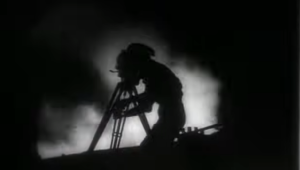Ken, you are playing with fire. As happened previously, that roar in the background you are probably now hearing(and it is getting progressively louder)is the forthcoming barrage of criticism from a few of the principles at Stereophile magazine.
Analog Video Is Dead, Analog Audio Lives On. Why?

You may already know the story. Funai Electric, the sole remaining manufacturer of VHS machines, announced that it ceased production at the end of July (Betamax machines disappeared back in 2002). Funai produced over 750,000 units last year, but apparently their sales, not surprisingly, were eroding. Still, that’s a respectable sales figure; I suspect they were having difficulty sourcing subassemblies from their suppliers. If you stockpiled a few million video head drums in your basement, the parts manager at Funai may be eager to take your call. But, in reality, the era of VCRs with flashing 12:00s is coming to an end.
But a question remains: Why does analog audio flourish while analog video is now dead? Analog audio enthusiasts would certainly point to sound quality as the number-one reason why analog audio still thrives. In contrast, the argument might go, analog video’s quality was always lacking. But is that really the case? While analog video formats such as Betamax and VHS never provided spectacularly good quality, the analog picture quality of the Laserdisc format was very good, and yet it was easy for DVD to push it aside. If performance was the most important factor, and if analog signals possessed some magical property, Laserdisc might still be around.
A variation on the argument might be that analog audio has magical properties, while analog video does not. Hence the survival of one and the demise of the other. There might be some truth in that argument, but I think there’s more to the story.
The Laserdisc is gone because of the Compact Disc. Given the CD’s popularity, it was easy for DVD, with excellent sound and picture quality, to piggyback onto CD and displace Laserdisc. Consumer analog videotape is gone because the performance was never very good; in all fairness, though, professional analog video formats performed extremely well. So the problem wasn’t analog video per se, it was the fact that the low price points of consumer analog video recorders necessarily limited their performance, and low-cost digital video players could perform better. It’s also worth noting that tape is inherently a PITA, and digital video discs are infinitely more convenient. Clearly, for a multitude of reasons, analog tape was always destined to be short-lived.
Still, why does analog audio persist? Analog audio open-reel tapes are pretty much gone, as are audiocassettes. It is specifically the vinyl record that persists and thrives. And why is that? One reason, certainly, is a combination of the fact and myth of its sound quality. Another reason, I think, is the purity, the elegance of the format. The black disc is dramatic; you can look at its surface and see the loud and soft portions of the music. When a shaped diamond is placed in the groove, it is wonderful to see that music emerges from such a simple machine. In contrast, the tape cartridges, loading slots, spinning drums, and clunky mechanics of analog video is as unsexy as it gets. Except to the superbly talented engineers who invented helical-scan technology, there is nothing fascinating about it. A slowly rotating disc with an undulating stylus—that is sexy.
Somewhere, someone is shedding crocodile tears over the passing of the VCR. But it’s not me, or anyone I know. Still, the format deserves our respect. Put a record on your turntable, and play an analog song, in remembrance of our departed analog brother.
- Log in or register to post comments

If certain people are going to defend an audio format with clicks, pops, surface noise, lousy dynamic range, crummy S/N ratio, and other deficiencies, then they had better not criticize ANYONE who says that VHS looks as good as Blu-ray. Ooooh, look at how much "warmer" and "natural" the picture is on VHS! I can't wait for that 240-scan line version of "Star Wars: The Force Awakens" to be released! Watching it on digital disc just doesn't measure up! That's about the same crap I hear from people defending vinyl all the time. And have fun dragging those 12" Frisbees to the beach. Maybe you can find a deal on a U-Haul so you can have your entire collection on hand. Of course, you can always buy a USB turntable and convert them all to digital files, which pretty much defeats the purpose of that "warmer, more natural" sound of vinyl in the first place.
Elegant? Please!

So you didn't take care of your records and probably played them on a cheap turntable with a ceramic cartridge that ruined them further. Boohoo. Digital has the potential to do everything better, but I know of very few recording companies that make use of it. Most digital releases have a dynamic range of less than 10 dB even though a CD has the potential dynamic range of 96 dB. The dynamic range has to be expanded beyond a measly 10 dB for vinyl or the stylus couldn't stay in the groove. The better dynamic range is the main reason I prefer listening to vinyl over digital.
One thing not mentioned in the article is the audio quality of video formats: VHS and Betamax sound very good and audio quality took a step backwards with DVD's lossy audio formats. Blu-ray is a big improvement except for the highly-compressed dynamic range that media companies still insist on using.

If you're looking for the equivalent analogue video version of vinyl, it is still alive and have an equally rabid following: film. The supporters of both even point out the same characteristics that they perceived to be positive attributes but can be derided by others as distortion. With vinyl, it's the pops and hisses, with film it's film grain. Both can easily be classified as distortion, but the fans of the formats love it. One potential reason why? That's how they grew up listening or watching and they think it represents the ideal way in which music or movies are supposed to be experienced.

I agree with you in principle that vinyl is more equivalent to film in terms of people's perceptions of quality (or the qualities they want their audio/video reproduction to aspire to)... But, like some movie directors demand their work be shown on film, some will have made work that was supposed to be shown on VHS. Where that is the case, the equivalent "pops and hisses" that VHS offers are part of the experience.
I prefer digital video for its "clean" look and sound, but I can understand why some people prefer film/vinyl as it adds effort to the experience. "I have had to work harder to get this reproduction going. I have had to change cartridges, clean heads or spool film and the rewards are in a 'better experience' I will enjoy so much more because I suffered for my art".
I don't know if vinyl or film or - in extremely rare cases - VHS offer a quantifiably "better" audio/video reproduction. But for anyone who has gone to the trouble of maintaining this type of equipment, it offers a better experience.






























































